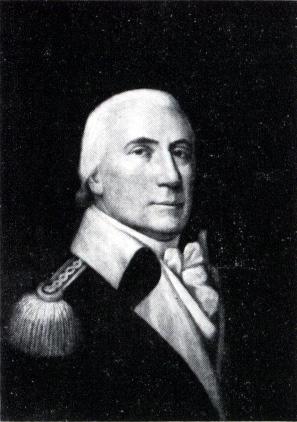

Alexander Martin

Alexander Martin (1740 - November 10, 1807) was the fourth and seventh Governor of the U.S. state of North Carolina from 1782 to 1784 and from 1789 to 1792.
Early life
Born in New Jersey in 1740, to James Hugh Martin and Jane Hunter of Ireland, Governor Alexander Martin was a North Carolinian politician and delegate to the Federal Constitutional Convention. Aside from his role in the Constitutional Convention, Martin witnessed several significant chapters in colonial and early U.S. history, including the Regulator Rebellion, the Revolutionary War, and the North Carolina ratification debates.
Martin held bachelor's and master's degrees from Princeton University (then called the College of New Jersey), making him one of the most erudite delegates to the Constitutional Convention. After graduating from Princeton, Martin moved to Salisbury, North Carolina. There he worked first as a merchant and later as an attorney. As his legal career took shape, the Regulator Rebellion began. On September 24, 1770, a bevy of angry Regulators took over the Hillsboro Court. When their demonstration spilled onto the streets of Hillsboro, several lawyers, including Martin, who likely was serving as a justice of the peace, were whipped and beaten.
Governor Alexander Martin is a direct descendant of the Sir Martin de Tours, Lord Combe Martin, Devon, England, Lord Kemys,Pembrokeshire, Wales who was a leading general officer in the Battle of Hastings of 1066 for William the Conqueror.
American Revolution
Military service
By 1774, Martin had become judge of the Salisbury district. When the American Revolution began, he served as a colonel in Richard Caswell's militia in North Carolina. After Martin's promotion to colonel, his regiment joined George Washington's army. In October 1777, at the Battle of Germantown, thick fog caused Martin and the soldiers under his command to mistake British troops for Continental soldiers. After this debacle, Martin faced a court-martial for cowardice. Though not convicted, Martin resigned from the army due to stress and poor health.
Political service
In 1778, while still recuperating from his military service, Martin was elected to the North Carolina Senate. His tenure in the Senate was eventful: he served as president of the Senate's Board of War and in 1781 became acting governor of North Carolina when the sitting governor, Thomas Burke, was kidnapped by Tories. In 1782, the General Assembly elected Martin governor of North Carolina. While the cessation of hostilities had eliminated the gravest threat to North Carolina, the end of the Revolution posed many challenges, the most pressing of which was the question of how to treat Tory and Loyalist property. Martin resisted popular pressure to confiscate and redistribute this property, instead advocating its return to all except for North Carolina's more infamous Tories.
Constitutional conventions
After Martin's gubernatorial term ended, he returned to the General Assembly, where he soon became speaker of the Senate. In 1787, the General Assembly elected him delegate to the Federal Constitutional Convention in Philadelphia, where the difficulties of the U.S. government under the Articles of Confederation would be weighed. Martin arrived in Philadelphia before the start of the convention and stayed until late August, a few weeks before the convention's close. He played little public role in the debates there, and he was not appointed to any of the convention's committees. He seconded several minor motions, none of which profoundly affected the course of the convention. Because Martin left the Federal Convention early, he did not sign the Constitution.
In 1788, Martin sought election to the Hillsborough Constitutional Convention, where North Carolina would consider ratifying the Constitution. A proponent of the Federal Constitution, Martin was helpless in the face of a wave of Anti-Federalist sentiment in North Carolina. Delegates were selected county by county, and Martin, who lived in the predominantly Anti-Federalist Guilford County, ran at a disadvantage. His opponent in the election - the Anti-Federalist Presbyterian minister David Caldwell - won a seat, as did four of his congregation. Martin was the only delegate to the Federal Convention who sought election to a state convention and lost.
Later political career
Martin's failure in Guilford County did not reflect any loss of popularity in the General Assembly. He was again elected governor in 1789 and held the office until 1792, when he reached the office's term limit. During his second gubernatorial tenure, a permanent seat of North Carolina government, named Raleigh, was founded in Wake County. Moreover, Martin effected the establishment of the University of North Carolina in 1789.
Immediately after Martin left the governor's seat, he joined the U.S. Senate. His legislative record in the 1790s indicates that Martin's political views were nuanced. Though he had supported the ratification of the Federal Constitution and had always run for election as a Federalist, he repeatedly voted against the Federalists in the 1790s. His convictions appear to have become more Federalist in the midst of the XYZ affair, and he voted for all of the Alien and Sedition Acts.
In 1799, Martin, having lost the support of North Carolina Federalists, was voted out of the Senate. He returned to the North Carolina General Assembly in 1804, and in 1805 again became Speaker of the North Carolina Senate. He died in 1807.
[ Source: Wikipedia ]